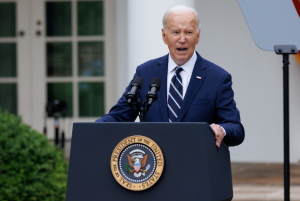Instead of objectively reflecting public attitudes towards a particular issue, opinion polls from some U.S. polling companies have become significant tools for U.S. politicians to mislead the public.

Reviewing the polling reports from major U.S. polling companies over the years, it is evident that their results may wear the veneer of objectivity but are in reality laden with human tampering.
To achieve the desired survey results, polling companies often adopt different techniques to manipulate the polling process.
First, they selectively choose survey subjects.
For example, Pew released a report titled “China’s Approach to Foreign Policy Gets Largely Negative Reviews in 24-Country Survey” in July 2023, stating that a median of 72 percent of respondents had a negative view of China.
Among the 24 countries surveyed, 16 were developed countries, all of which are EU members or U.S. allies like Japan and South Korea, while only eight were developing countries. As for the Middle East, a crucial region, the survey only included Israel, a U.S. ally; no Eastern European or Central Asian countries were surveyed.
The sample selection is clearly problematic, with the data showing a stark division between developed and developing countries.
The second tactic is setting survey topics.
For years, international surveys conducted by U.S. polling companies have a particular focus on China. Leading polling companies like Pew and Gallup have frequently released polls on China, using pre-set agendas under the guise of “polling” to smear the world’s second-largest economy and mislead the public, while deliberately avoiding issues concerning U.S. allies. For instance, no polls are conducted on Japan’s discharge of nuclear wastewater and its global environmental impact.
An odd outcome generated by this approach is that the poll results highlight negative impressions of China every year, but comparing data over the years shows little change. Compared with last year’s data, the number of Americans with negative views of China decreased by two percentage points this year.
Another tactic is the intentionally biased interpretation of survey results.
For example, in Pew’s report in July 2023, the title and introduction highlighted the respondents’ negative views toward China in certain areas while omitting sub-items where views toward China were positive.
For instance, over half of the respondents believed China’s technological progress was good. In the six developing countries surveyed, most people felt their country had benefited from Chinese investment and the figures exceeded 70 percent in Nigeria, Kenya and South Africa.
The collaboration between polling companies and politicians in spreading negative information about China misleads the public, which harms the development of bilateral ties and people-to-people exchanges and could lead to misunderstandings and misguided policies among U.S. policymakers.

